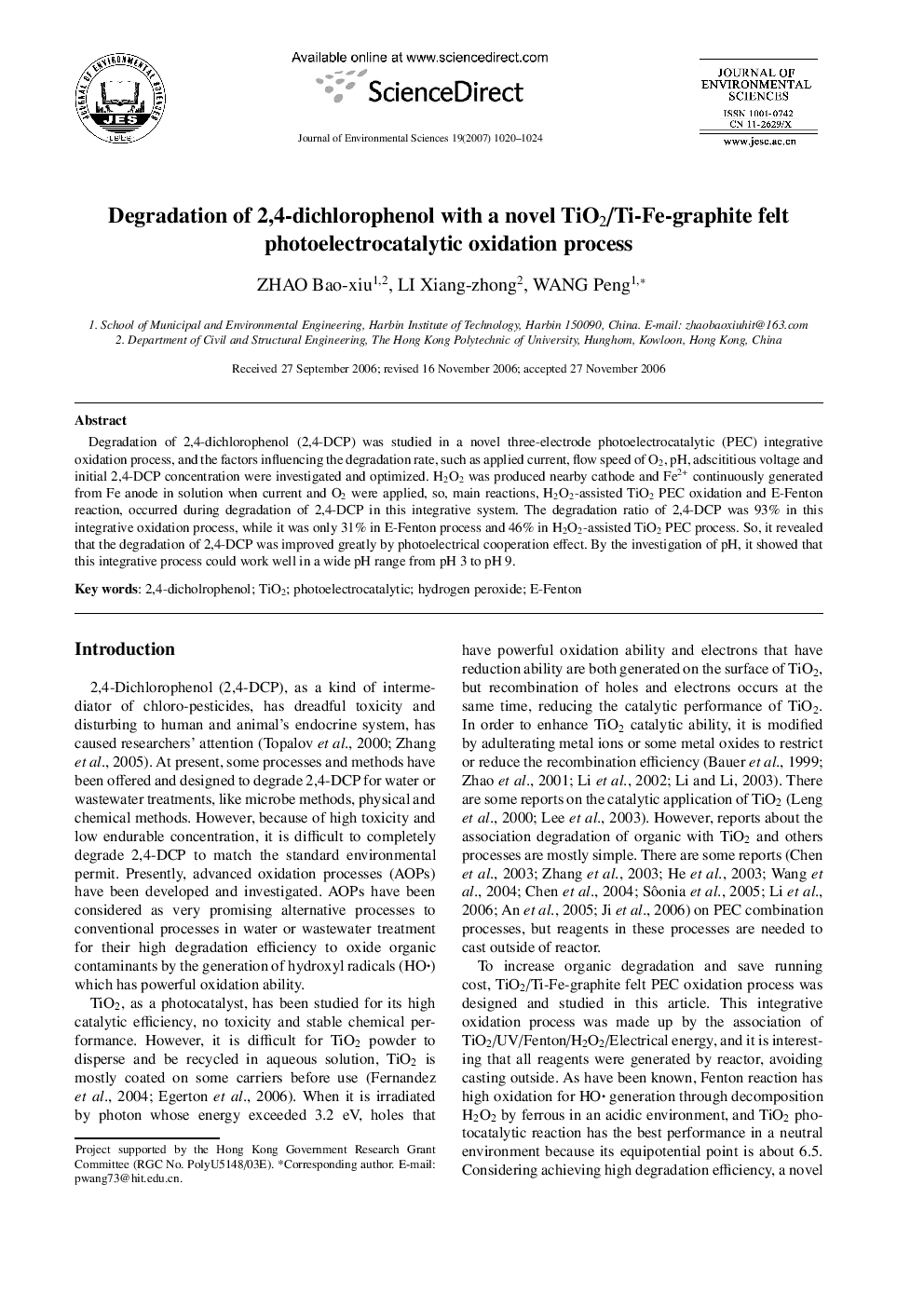| Article ID | Journal | Published Year | Pages | File Type |
|---|---|---|---|---|
| 4456803 | Journal of Environmental Sciences | 2007 | 5 Pages |
Degradation of 2,4-dichlorophenol (2,4-DCP) was studied in a novel three-electrode photoelectrocatalytic (PEC) integrative oxidation process, and the factors influencing the degradation rate, such as applied current, flow speed of O2, pH, adscititious voltage and initial 2,4-DCP concentration were investigated and optimized. H2O2 was produced nearby cathode and Fe2+ continuously generated from Fe anode in solution when current and O2 were applied, so, main reactions, H2O2-assisted TiO2 PEC oxidation and E-Fenton reaction, occurred during degradation of 2,4-DCP in this integrative system. The degradation ratio of 2,4-DCP was 93% in this integrative oxidation process, while it was only 31% in E-Fenton process and 46% in H2O2-assisted TiO2 PEC process. So, it revealed that the degradation of 2,4-DCP was improved greatly by photoelectrical cooperation effect. By the investigation of pH, it showed that this integrative process could work well in a wide pH range from pH 3 to pH 9
